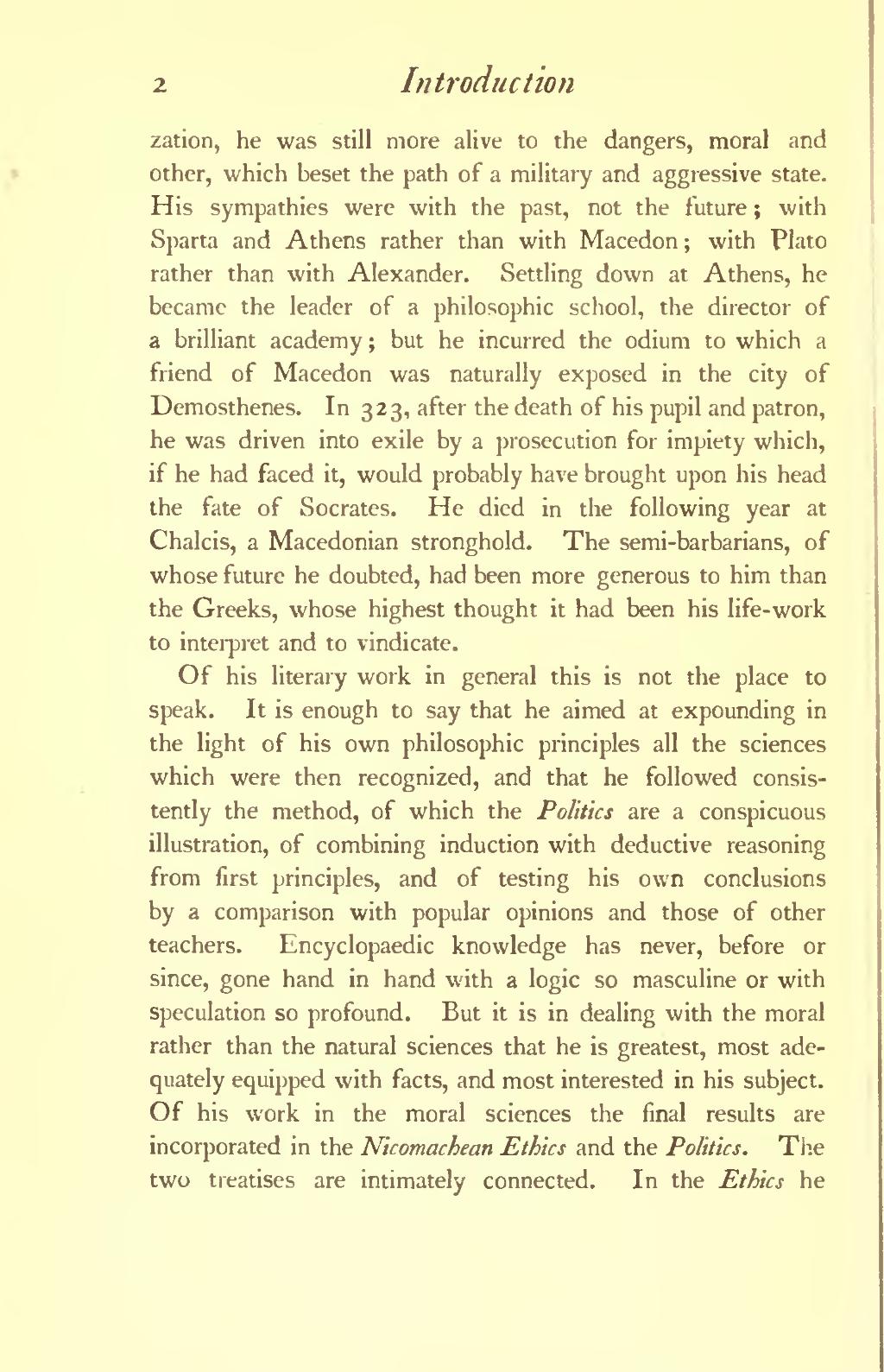zation, he was still more alive to the dangers, moral and other, which beset the path of a military and aggressive state. His sympathies were with the past, not the future; with Sparta and Athens rather than with Macedon; with Plato rather than with Alexander. Settling down at Athens, he became the leader of a philosophic school, the director of a brilliant academy; but he incurred the odium to which a friend of Macedon was naturally exposed in the city of Demosthenes. In 323, after the death of his pupil and patron, he was driven into exile by a prosecution for impiety which, if he had faced it, would probably have brought upon his head the fate of Socrates. He died in the following year at Chalcis, a Macedonian stronghold. The semi-barbarians, of whose future he doubted, had been more generous to him than the Greeks, whose highest thought it had been his life-work to interpret and to vindicate.
Of his literary work in general this is not the place to speak. It is enough to say that he aimed at expounding in the light of his own philosophic principles all the sciences which were then recognized, and that he followed consistently the method, of which the Politics are a conspicuous illustration, of combining induction with deductive reasoning from first principles, and of testing his own conclusions by a comparison with popular opinions and those of other teachers. Encyclopaedic knowledge has never, before or since, gone hand in hand with a logic so masculine or with speculation so profound. But it is in dealing with the moral rather than the natural sciences that he is greatest, most adequately equipped with facts, and most interested in his subject. Of his work in the moral sciences the final results are incorporated in the Nicomachean Ethics and the Politics. The two treatises are intimately connected. In the Ethics he
